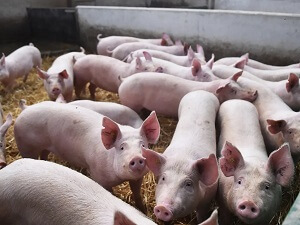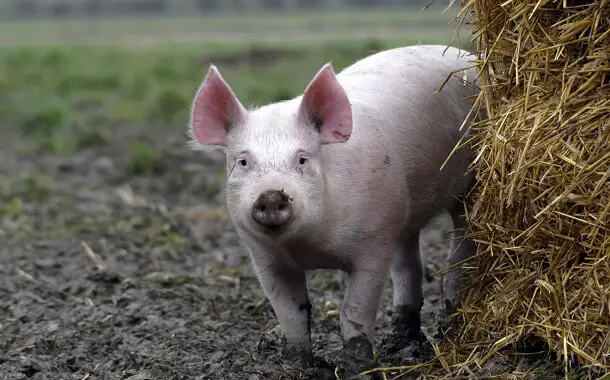How Much Does a Pig Cost?
In the pan fresh out of the oven, sizzling on the grill, or even between the slices of a sandwich. Pork is easily found in almost any culinary setting, and the enjoyment of its taste has turned pig farming into a start-up business with all the odds on its side.
How Much Does a Pig Cost?
When it comes to the cost of a pig, there are many factors we need to consider such as the type of pig, the actual market conditions, your geographical location, the quality, the specific breed, and the age of the pig.
However, the main factor that will affect the price of the pig you want to buy will be the type of pig. For example, the cost of a breeding pig of good quality would start at around $320 and go up to more than $1,100, while for a good feeder pig, you will have to pay anywhere between $60 and $150.
Expect to spend $60 to $230 for a piglet, or even more than that for a registered heritage breed. Keep in mind that this amount does not include the costs of the infrastructure, feed, and others. Also, when you are ready to butcher, the processing fees will not be included.
In the table below you will find the average costs for some of the most popular pig breeds.
| Breed | Average Price (each) |
| Yorkshire | $230 |
| Tamworth | $280 |
| Red Wattle | $145 |
| Mangalitsa | $450 |
| Hereford | $275 |
| Feeder | $90 |
| Duroc | $230 |
| Berkshire | $110 |
| American Guinea | $175 |
Important things to consider
If they are fed correctly, in the first month after birth, piglets increase their body mass 5-6 times. But for this, it is necessary that, in addition to the mother’s milk, infants receive additional feed. In order for piglets to develop properly, they must get acquainted early and gradually with dry food. Because babies’ stomachs are small, they need to eat small amounts but often, at least 8-10 times a day.
The best suitable feeds for young pigs are oats, barley, pea meal, bran, skimmed milk, and whey. In the case of juicy feed, we should mention carrots, boiled potatoes, green grass, and food scraps.
You might also like our articles on the cost to raise a goat, a sheep, or a cow.
It should not be forgotten that pigs need a lot of fresh, clean water. But keeping the water clean can prove to be a real obstacle course for farmers for one very simple reason: pigs like to “stay” and get into both the water and food bowls; regardless of how dirty they are. To prevent this bowls with grates can be purchased with meshes large enough to allow the pig to drink or eat, but not allow it to climb all the way up. It is also good if the bowls have supports with which they can be fixed so that the animals cannot move them around.
Those who want to raise pigs organically must take into account the fact that organic feed is, on average, twice as expensive as that obtained by the classical method. However, “eco” meat is also sold much more expensive than that because it comes from grain-fed animals that have been kept safe from chemical treatments.
What are the additional expenses?
The feed will be your biggest expense. Until the pig reaches the market weight, you will have to spend anywhere between $170 and $250 for its food. A pig will consume around eight hundred pounds of food in its lifetime
 If you are just starting with raising pigs and haven’t built their shelter yet, you will have to also budget for the pasture and some sort of shed/stall. Also, you will need some type of watering and feeding equipment inside the pasture. Consider the costs of fencing as well.
If you are just starting with raising pigs and haven’t built their shelter yet, you will have to also budget for the pasture and some sort of shed/stall. Also, you will need some type of watering and feeding equipment inside the pasture. Consider the costs of fencing as well.
It is highly recommended by the pig owners to install electric fencing, which may cost around $2 per foot only for the materials. The cost of a shelter will depend mostly on your preferences, but for a simple shelter, you will spend anywhere between $600 and $1,000.
It is highly recommended to have bedding inside the shelter. This would cost around $7 per bale and has to be replenished when it starts to thin out.
Similar to any other animal, a pig will need vet visits for mite treatment and basic deworming. Most probably you will have to pay the vet to come to your farm because you will not take your pigs to a local vet.
Most choose to raise pigs for the meat and in this case, you will have to also consider the processing fees when you decide to hire a local butcher. Usually, a butcher charges a one-time pig death fee that is anywhere between $40 and $60. Plus, they will charge by the pound, which may be anywhere between $1 and more than $3 per hanging weight, depending on what cuts you want. Expect to spend anywhere between $250 and $500 per pig.
Tips for saving money
If you purchase ten or more pigs at once, you should get a discount from most farmers.


Leave a Reply
Want to join the discussion?Feel free to contribute!